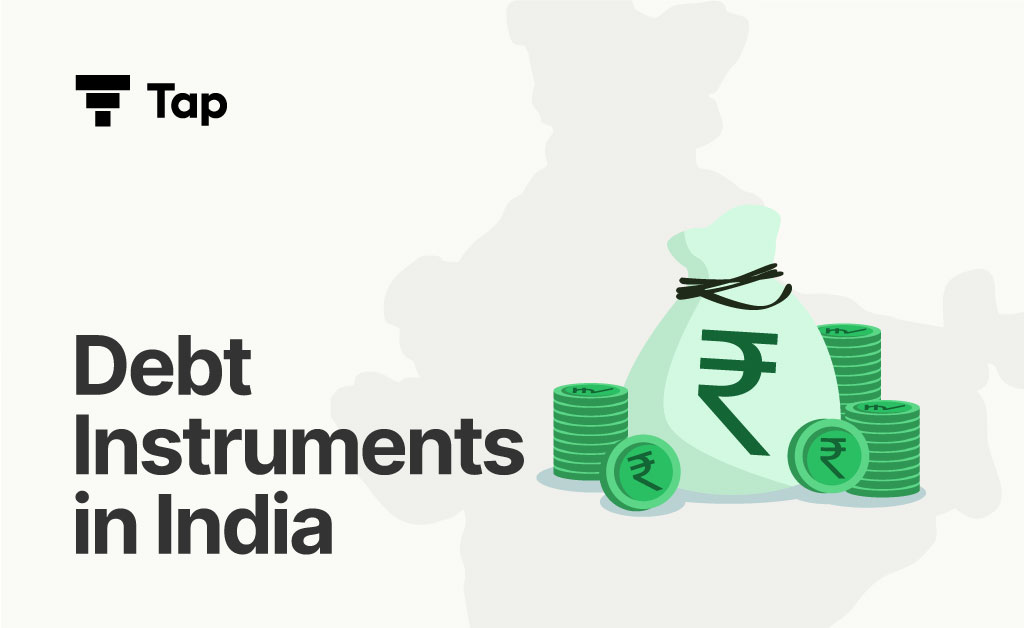Navigating the Landscape of Debt Instruments in the Indian Financial Market

The financial market in India is vast and multifaceted, offering a plethora of investment opportunities to individuals and businesses alike. Among the various segments, the debt market stands out as a cornerstone for investors seeking stability, regular income, and risk diversification. This comprehensive guide delves into the intricacies of debt instruments in the Indian financial landscape, shedding light on their types, benefits, and role in building a resilient investment portfolio.
Understanding Debt Instruments:
The debt market encompasses a wide array of fixed-income securities where investors can lend money to borrowers in exchange for regular interest payments and principal repayment at maturity. Unlike the equity market, which entails ownership stakes in companies, the debt market revolves around debt instruments that provide predetermined returns with lower risk levels.
Types of Debt Instruments In India:
1. Government Bonds:
– Issued by the central or state government to raise capital.
– Offered at fixed or floating interest rates with sovereign guarantees.
– Provide a safe investment avenue for retail investors.
2. Debentures:
– Corporate debt instruments used by companies to raise funds from the public.
– Promise fixed interest payments to investors, backed by the issuing company’s creditworthiness.
– Carry inherent risks associated with the financial health of the issuing company.
3. Fixed Deposits:
– Offered by banks, NBFCs, and post offices, providing fixed interest rates over a specified term.
– Flexible investment option with varying maturity periods and interest payment frequencies.
– Ensure principal protection and liquidity, albeit with penalties for premature withdrawals.
4. Certificates of Deposit (CDs):
– Short-term debt instruments issued by banks to raise funds from investors.
– Available in dematerialized form with minimum investment thresholds and predefined maturity periods.
– Low-risk investments with fixed or floating interest rates, suitable for short-term liquidity needs.
5. Commercial Papers (CPs):
– Short-term unsecured promissory notes issued by corporations to meet immediate funding requirements.
– Offered at discounted rates with flexible tenures ranging from 7 days to 1 year.
– Provide higher yields compared to traditional fixed-income securities.
6. Government Securities:
– Issued by the Reserve Bank of India (RBI) on behalf of the central or state government.
– Backed by sovereign guarantees, offering low-risk investment opportunities to retail and institutional investors.
– Available in various tenures with periodic interest payments and principal repayment at maturity.
Benefits of Debt Instruments:
1. Stability:
– Debt instruments provide stability to investment portfolios, offering predictable returns and capital preservation.
– Ideal for risk-averse investors seeking steady income streams and downside protection during market downturns.
2. Lucrative Returns:
– Fixed-income securities offer competitive returns, often exceeding those of savings accounts and traditional bank deposits.
– Serve as an attractive investment avenue for individuals looking to generate passive income and build long-term wealth.
3. Liquidity:
– Debt instruments offer high liquidity, allowing investors to redeem their investments and access funds quickly.
– Facilitate seamless cash flow management and emergency fund requirements without sacrificing capital appreciation.
4. Safety:
– Government-backed bonds and highly-rated corporate debentures provide investors with a safe haven for their capital.
– Shield against market volatility and credit risks, ensuring capital preservation and peace of mind.
5. Taxation Benefits:
– Certain debt instruments offer tax advantages, such as tax-saving fixed deposits and investments eligible for deductions under Section 80C of the Income Tax Act.
– Enable investors to optimize their tax liabilities and enhance after-tax returns on investment.
Conclusion:
Debt instruments play a pivotal role in the Indian financial market, offering a blend of stability, income, and risk mitigation to investors. Whether it’s government bonds, corporate debentures, or fixed deposits, these instruments cater to a diverse range of investment objectives and risk appetites. By incorporating debt instruments into their portfolios, investors can achieve a balanced and resilient investment strategy tailored to their financial goals and preferences.
Key FAQs On Debt Instruments In India:
What are the 5 debt instruments?
1. Bonds: Long-term securities issued by governments or corporations.
- Debentures: Unsecured loans issued by companies.
3. Treasury Bills (T-Bills): Short-term government securities.
4. Certificates of Deposit (CDs): Short-term deposits issued by banks.
5. Commercial Paper: Short-term unsecured promissory notes issued by companies.
What are debt instruments?
Debt instruments are financial assets that involve borrowing funds, where the issuer agrees to repay the borrowed amount with interest. They include bonds, debentures, treasury bills, and more.
How to buy debt instruments in India?
You can buy debt instruments in India through:
– Banks and Financial Institutions: Directly or via fixed deposits and CDs.
– Stock Exchange: By purchasing listed bonds and debentures.
– Mutual Funds: Investing in debt mutual funds.
– Primary Market: Participating in public issues or auctions.
Who can issue debt instruments in India?
Debt instruments in India can be issued by:
– Government: Central and state governments issue bonds and treasury bills.
– Corporations: Companies issue debentures and commercial paper.
– Banks and Financial Institutions: Issue certificates of deposit and bonds.
